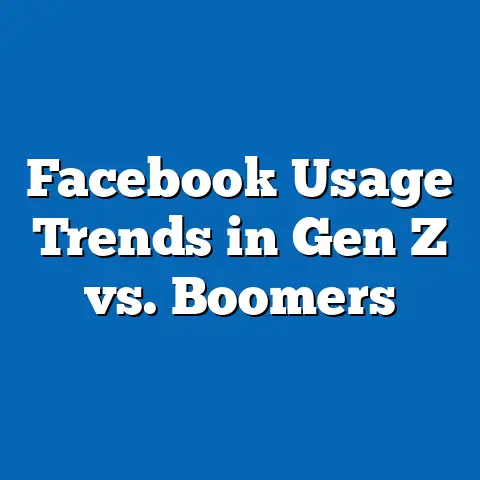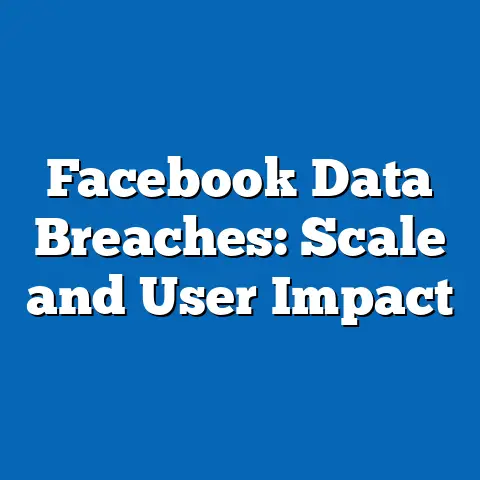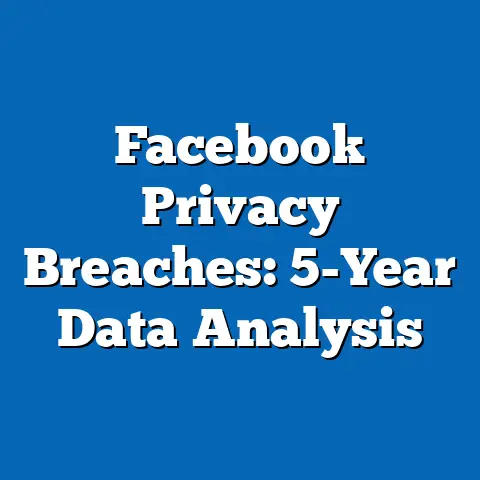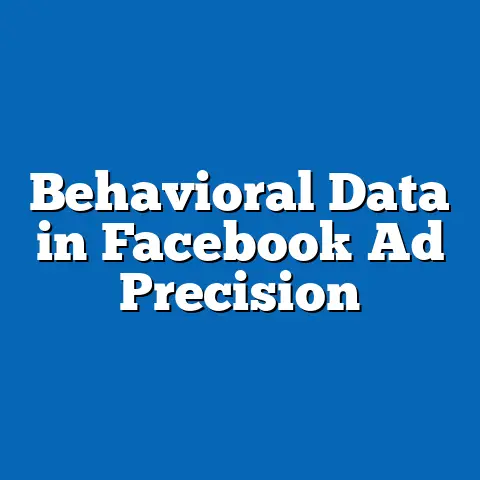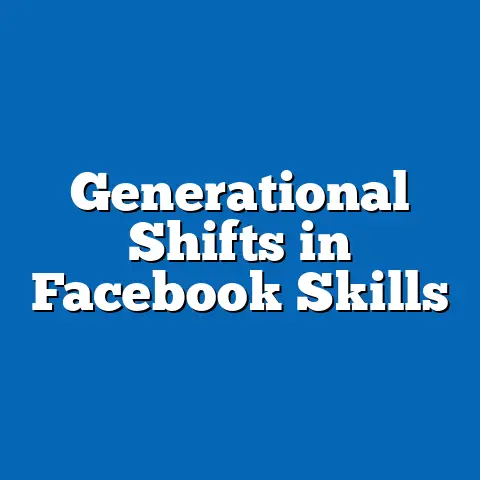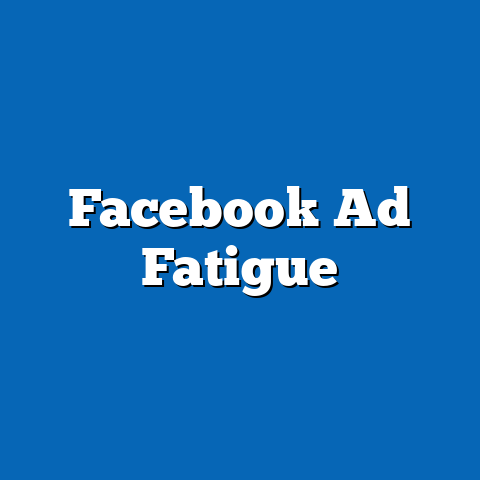Facebook’s Impact on Mental Health: Survey Data
In the past two decades, social media platforms have transformed the way individuals connect, communicate, and consume information.
Among these platforms, Facebook, launched in 2004, stands as a pioneer, growing from a college networking site to a global behemoth with over 2.9 billion monthly active users as of 2023.
While Facebook has facilitated unprecedented levels of social connectivity, it has also sparked significant debate about its impact on mental health.
Several historical events and technological shifts shaped Facebook’s trajectory.
The proliferation of smartphones in the late 2000s, coupled with the introduction of the Facebook mobile app, made the platform accessible anytime, anywhere.
The 2010s saw features like the “Like” button and algorithmic news feeds, which prioritized emotionally engaging content, often amplifying polarizing or sensational material.
This era also marked a cultural shift toward digital self-expression.
Sharing personal updates, photos, and opinions became normalized, fundamentally altering social interactions.
However, as Facebook grew, so did concerns about its psychological effects, with early studies in the 2010s linking excessive social media use to anxiety, depression, and loneliness.
Understanding this historical backdrop is crucial to contextualizing survey data on mental health impacts today.
Section 2: Defining Characteristics of Facebook Usage Across Generations
Facebook’s user base spans multiple generations, each interacting with the platform in distinct ways influenced by their cultural, economic, and technological contexts.
Survey data from Pew Research Center (2022) indicates that while younger generations like Gen Z (born 1997–2012) favor platforms like Instagram and TikTok, they still maintain a presence on Facebook, with 32% reporting regular use.
Millennials (born 1981–1996), often early adopters of the platform, show higher engagement, with 70% active on Facebook.
Gen X (born 1965–1980) and Baby Boomers (born 1946–1964) also form significant portions of the user base, often using Facebook for family connections, news consumption, and community groups.
A 2021 study by Statista revealed that 60% of Gen X and 48% of Baby Boomers use Facebook daily, reflecting its role as a primary social tool for older demographics.
These generational differences highlight diverse motivations for usage, from social networking among younger users to information-seeking among older ones.
It’s important to note the diversity within these cohorts.
Not all Millennials use Facebook for the same reasons, nor do all Baby Boomers struggle with its interface.
Economic status, education, and cultural background further shape how individuals engage, underscoring the need for nuanced analysis beyond generational stereotypes.
Section 3: Survey Data on Facebook and Mental Health Outcomes
A growing body of survey research has examined the relationship between Facebook usage and mental health, revealing both positive and negative effects.
A 2020 meta-analysis published in the Journal of Affective Disorders reviewed 30 studies and found a small but significant correlation between heavy social media use (including Facebook) and increased symptoms of depression and anxiety.
Specifically, users spending over three hours daily on platforms like Facebook reported higher levels of stress and lower self-esteem.
One key survey, conducted by the University of Pennsylvania in 2018, experimentally reduced participants’ social media use to 30 minutes per day.
The results showed a significant decrease in loneliness and depressive symptoms among the intervention group compared to controls.
This suggests that time spent on platforms like Facebook may exacerbate feelings of isolation, particularly through mechanisms like social comparison.
Conversely, some studies highlight positive outcomes.
A 2021 survey by the American Psychological Association found that 45% of respondents felt Facebook helped them stay connected with friends and family, particularly during the COVID-19 pandemic.
For marginalized groups, such as LGBTQ+ individuals or those with chronic illnesses, Facebook groups provide vital support networks, fostering a sense of belonging.
However, the data also reveals risks of negative feedback loops.
Algorithms that prioritize engagement often expose users to idealized portrayals of others’ lives, fueling envy and inadequacy.
A 2019 survey by YouGov reported that 31% of Facebook users felt worse about themselves after scrolling through their feeds, with women and younger users most affected.
These findings are not universal.
Mental health outcomes vary based on usage patterns, personality traits, and pre-existing conditions.
For instance, passive scrolling is more strongly linked to negative effects than active interaction (e.g., commenting or messaging), as noted in a 2022 study by Cyberpsychology, Behavior, and Social Networking.
Section 4: Societal Trends and Cultural Shifts Linked to Facebook
Facebook’s influence extends beyond individual mental health to broader societal trends.
One notable shift is the redefinition of social relationships in the digital age.
The platform’s “friend” system, while fostering connectivity, often creates superficial ties, with users averaging 338 friends according to a 2020 Pew survey, many of whom are acquaintances rather than close confidants.
This phenomenon, dubbed “context collapse,” occurs when diverse social circles (family, colleagues, old classmates) converge in one digital space, leading to stress over self-presentation.
A 2017 study in Social Media + Society found that 28% of users reported anxiety over how their posts might be perceived by different audiences, contributing to mental strain.
Additionally, Facebook has played a role in shaping public discourse, often with mental health implications.
The platform’s algorithms can create echo chambers, reinforcing existing beliefs and exposing users to misinformation.
During events like the 2016 U.S.
presidential election or the COVID-19 pandemic, surveys showed heightened stress among users exposed to polarizing content, with 37% reporting “news fatigue” in a 2021 Reuters Institute study.
Culturally, Facebook has normalized constant connectivity, blurring boundaries between personal and public life.
This “always-on” culture, as described by sociologist Sherry Turkle, can lead to burnout and reduced face-to-face interaction, both of which are linked to poorer mental health outcomes in longitudinal studies.
Section 5: Technological and Economic Factors Influencing Mental Health Impacts
The design of Facebook itself, driven by technological and economic imperatives, significantly shapes its mental health effects.
Features like notifications and infinite scrolling are engineered to maximize user engagement, often at the expense of well-being.
A 2017 internal Facebook study, leaked to the Wall Street Journal in 2021, acknowledged that the platform’s algorithms could harm mental health by promoting content that triggers negative emotions.
Economically, Facebook’s business model relies on advertising revenue tied to user attention.
This incentivizes features that keep users online longer, even if it means increased exposure to harmful content.
A 2022 survey by Common Sense Media found that 62% of teens felt addicted to social media, including Facebook, due to these design elements.
Moreover, access to technology influences mental health outcomes.
Lower-income users, who may rely on public Wi-Fi or shared devices, often face additional stressors like privacy concerns or inconsistent access, as noted in a 2020 study by the Digital Divide Institute.
These disparities highlight how socioeconomic factors intersect with platform use to impact well-being.
Section 6: Comparing Generational Experiences with Facebook and Mental Health
Generational differences in Facebook usage reveal varied mental health implications.
For Gen Z, who grew up with social media as a norm, the platform can be a double-edged sword.
While it offers spaces for activism and community, a 2021 Lancet Psychiatry study found that Gen Z users reported higher rates of anxiety linked to online bullying and FOMO (fear of missing out) compared to older cohorts.
Millennials, who adopted Facebook during its early years, often use it for professional networking alongside personal connections.
Surveys indicate mixed outcomes: while 40% report positive networking effects (LinkedIn 2022 survey), others cite stress from maintaining an online “personal brand,” as per a 2019 Gallup poll.
Gen X and Baby Boomers, less immersed in digital culture during formative years, may experience Facebook differently.
Older users are more likely to encounter misinformation, with a 2020 MIT study showing Baby Boomers were twice as likely to share fake news on Facebook, leading to stress when confronted with conflicting information.
However, these generations also report benefits from reconnecting with past friends, mitigating loneliness, according to a 2021 AARP survey.
These comparisons underscore that mental health impacts are not uniform.
Age, life stage, and digital literacy all mediate how Facebook affects well-being, necessitating tailored interventions.
Section 7: Workplace and Social Implications of Facebook’s Mental Health Effects
Facebook’s influence on mental health has ripple effects in workplaces and broader social contexts.
In professional settings, the platform can blur personal and professional boundaries, with 35% of employees in a 2022 SHRM survey reporting stress from colleagues or bosses viewing their posts.
Additionally, overuse during work hours correlates with reduced productivity and heightened anxiety, as noted in a 2020 Journal of Occupational Health Psychology study.
Socially, Facebook shapes community dynamics, sometimes fostering division.
The platform’s role in events like the January 6, 2021, U.S.
Capitol riot illustrates how online echo chambers can translate to real-world conflict, with subsequent surveys showing 29% of users felt more polarized post-event (Pew Research, 2021).
This polarization contributes to collective stress, undermining social cohesion.
On a positive note, Facebook facilitates grassroots organizing and awareness campaigns for mental health.
Pages and groups dedicated to destigmatizing mental illness reach millions, with 52% of users in a 2022 NAMI survey reporting they learned about mental health resources via the platform.
Balancing these benefits and harms is critical for understanding societal impact.
Section 8: Nuances and Diversity in Mental Health Outcomes
While survey data provides valuable insights, it’s essential to recognize the diversity of experiences within and across demographics.
Cultural background influences how users perceive Facebook’s impact, with collectivist societies (e.g., in Asia) often prioritizing group harmony online, potentially reducing conflict-related stress, as per a 2019 cross-cultural study in Computers in Human Behavior.
Gender also plays a role.
Women are more likely to report negative body image issues from Facebook, with a 2021 Dove Self-Esteem Project survey finding 36% of female users felt pressure to conform to beauty standards.
Men, meanwhile, report higher stress from career-related comparisons, per a 2020 Men’s Health study.
Individual personality traits, such as introversion or pre-existing mental health conditions, further complicate outcomes.
A 2022 study in Personality and Individual Differences found that extroverts often benefit from Facebook’s social features, while introverts may feel overwhelmed.
These nuances remind us that aggregate data cannot capture every user’s reality.
Section 9: Forward-Looking Insights and Uncertainties
Looking ahead, the relationship between Facebook and mental health will likely evolve with technological and societal changes.
Meta, Facebook’s parent company, is investing in virtual reality and the metaverse, raising questions about how immersive digital environments might affect well-being.
Early research on VR social spaces suggests potential for deeper connection but also heightened risks of dissociation and addiction.
Regulatory scrutiny is another factor.
Governments worldwide are exploring policies to curb harmful content and addictive design features, as seen in the EU’s Digital Services Act (2022).
Such measures could mitigate some mental health risks, though their effectiveness remains uncertain.
User behavior may also shift.
As awareness of social media’s mental health impacts grows, surveys show increasing interest in “digital detoxes,” with 24% of users in a 2023 GlobalWebIndex report planning to reduce time on platforms like Facebook.
Whether this translates to sustained change is unclear, given the platform’s entrenched role in daily life.
Finally, mental health interventions must adapt.
Therapists are increasingly addressing social media in treatment, with 41% of psychologists in a 2022 APA survey incorporating digital habits into therapy plans.
Scaling such efforts, alongside platform-driven reforms, will be key to addressing challenges.
Conclusion: Balancing Connectivity and Well-Being
Facebook’s impact on mental health is a complex interplay of individual, generational, and societal factors.
Survey data reveals both harms—such as increased anxiety from social comparison and overuse—and benefits, like enhanced connectivity and support networks.
Historical context, from the platform’s early days to its algorithm-driven present, underscores how technological design and cultural shifts shape these outcomes.
As society grapples with these dynamics, a balanced approach is essential.
Stakeholders, from policymakers to platform designers to users themselves, must prioritize mental well-being without dismissing the value of digital connection.
While uncertainties remain about future trends, ongoing research and dialogue offer hope for mitigating risks and maximizing benefits in an increasingly connected world.
This analysis, grounded in survey data and broader trends, highlights the need for nuanced understanding over blanket judgments.
By acknowledging diversity in experiences and the multifaceted nature of mental health, we can better navigate the challenges and opportunities presented by platforms like Facebook in the 21st century.

